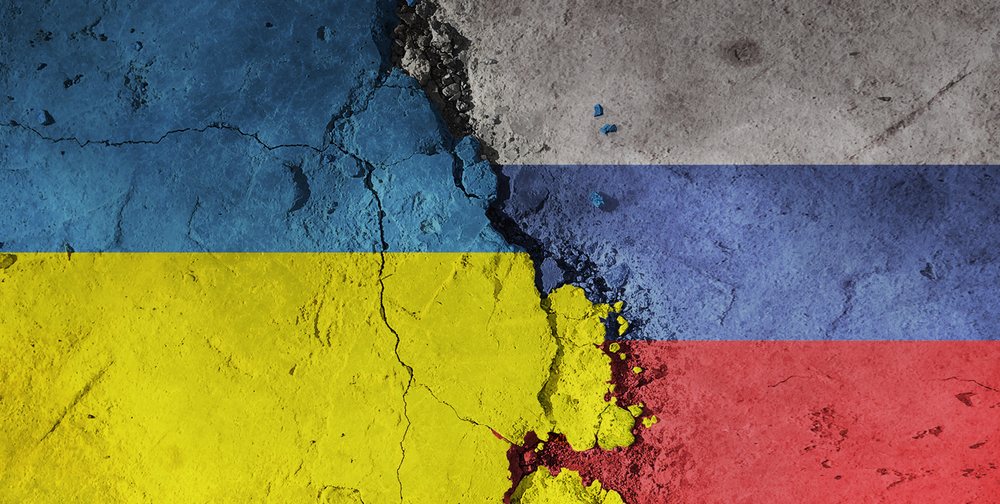War has arrived in Eastern Europe. On February 24, Russian armed forces invaded Ukraine[1]. The invasion, hallmarked already by indiscriminate civilian area bombing, threatens to become Europe’s deadliest conflict since the Second World War[2]. Yet, despite its dramatic buildup, the Russian invasion has not gone to plan. Vladimir Putin’s calculus has backfired; his incursion is stalled by logistical failures and fierce Ukrainian resistance, while Ukraine and its president have ascended to global heroism[3]. On its face, Russia’s adventurism could catastrophically undermine Russian domestic stability and the global international order.
For one, Russia’s failures in Ukraine have dispelled any myth that Russia cannot be fought against successfully by its small neighbors[4]. There are several explanations for Russia’s failures—at first glance, the Russian decision to invade Ukraine likely presupposed Ukrainian weakness or compliance, and predictably so[5]. When Russia annexed Crimea from Ukraine in 2014, the Ukrainian defenders offered virtually no resistance[6]. Additionally, even in the post-Soviet era, the Russian military greatly outweighs Ukraine’s technologically and numerically[7]. The international community was understandably surprised to see Ukrainian hold back its gargantuan neighbor—and Russia to see its military falter disastrously[8].
Russia’s lack of progress, however, does not guarantee its defeat. The firepower disparity between Russia and Ukraine remains and evinces that the Russian military is holding back[9]. Its air force remains technologically superior, and Russia’s artillery corps is formidable[10]. In light of Western sanctions, Russia’s leadership may consider it too late—and worthwhile using their military’s full strength. In such a case, the ramifications of Putin’s miscalculation could permanently upend the global order. If Russia does escalate, either by leveling Ukrainian cities or employing tactical nuclear weapons—preconceptions about 21st-century warfare will dramatically change as countries prepare for the worst. Germany, for example, has committed funds to become the world’s third-biggest military spender[11]. Historically neutral countries are similarly reassessing NATO membership[12].
In the East, China will closely observe the war—and the Western reaction—when assessing its goals in Taiwan[13]. Whether East Asia collapses into war could depend on the outcome of Russia’s war in Ukraine[14]. Western policymakers must tread carefully if Russia escalates, for Putin threatens intervenors with unprecedented consequences and has readied Russia’s nuclear forces[15]. Inaction, however, would empower autocrats globally to use military force where they deem it necessary.
By engaging in political brinksmanship, Putin unwittingly self-sabotages himself. For one, history teaches that autocrats cannot lose wars and remain autocrats[16]. Its people threatened in recent years by decreasing living standards, Russia today is more repressive than it has ever been since the fall of the Soviet Union[17]. Since the invasion, global markets have closed to Russia, including oil—the exports of which have been crucial to Russia’s modernization—and gas markets[18]. Western sanctions could place ordinary Russians at odds with Putin’s policy as they chip further away at Russia’s intellectual, cultural, and economic base[19]. The day may come when they are no longer willing to tolerate his aggression.
[1] Russia invades Ukraine, The Economist (Feb. 24, 2022) https://www.economist.com/europe/2022/02/24/russia-invades-ukraine.
[2] See Franz-Stefan Gady, Putin has brought conventional, bloody warfare back to Europe, Financial Times, Feb. 2020 https://www.ft.com/content/baea3c63-8b7c-4dd7-a93e-fda97d3f509a.
[3] Vladimir Putin’s nuclear threat shows how much is going wrong for him in Ukraine, The Economist (Feb. 27, 2022) https://www.economist.com/leaders/2022/02/27/vladimir-putins-nuclear-threat-shows-how-much-is-going-wrong-for-him-in-ukraine.
[4] See Christopher Bort, Putin the Gambler, Foreign Affairs (Mar. 10, 2022) https://www.foreignaffairs.com/articles/ukraine/2022-03-10/putin-gambler.
[5] Jazper Lu, Why did Russia invade Ukraine, and how will the war end? Former ambassador to Russia breaks down invasion in talk, The Duke Chronicle (Mar. 3, 2022) https://www.dukechronicle.com/article/2022/03/vladimir-putin-endgame-event-duke-university-russia-ukraine-american-grand-strategy; Why Russia Has Never Accepted Ukrainian Independence, The Economist (Dec. 18, 2021) https://www.economist.com/christmas-specials/2021/12/18/why-russia-has-never-accepted-ukrainian-independence.
[6] See Steven Pifer, Crimea: Six years after illegal annexation, Brookings (Mar. 17, 2020) https://www.brookings.edu/blog/order-from-chaos/2020/03/17/crimea-six-years-after-illegal-annexation/.
[7] Factbox: How Ukraine’s armed forces shape up against Russia’s, Reuters (Feb. 24, 2022) https://www.reuters.com/business/aerospace-defense/how-ukraines-armed-forces-shape-up-against-russias-2022-02-01/.
[8] The Economist, supra note 3. Journalists have analogized the war in Ukraine to the 1939 Winter War, when Finland held its ground against the Soviet Union and claimed a “moral victory.” Gordon F. Sandler, How Finland held off the Russians and won a moral victory—with lessons for Ukraine, The Washington Post(Mar. 4, 2022) https://www.washingtonpost.com/history/2022/03/04/finland-russia-winter-war/.
[9] See Helene Cooper et al., As Russia’s Military Stumbles, Its Adversaries Take Note, New York Times (Mar. 7, 2022) https://www.nytimes.com/2022/03/07/us/politics/russia-ukraine-military.html.
[10] Id.
[11] A big defense budget shows Germany was woken up, The Economist (Mar. 19, 2022) https://www.economist.com/leaders/a-big-defence-budget-shows-germany-has-woken-up/21808225.
[12] Lisa Abend, Finland and Sweden Wrestle With the Benefits—and Risks—of Joining NATO, TIME (Mar. 18, 2022) https://time.com/6158727/finland-sweden-wrestle-with-the-benefits-joining-nato/.
[13] Bonnie S. Glaser and Judie Blanchette, Ukraine War Should Counsel Chinese Caution in Taiwan, Wall Street Journal (Mar. 8, 2022) https://www.wsj.com/articles/ukraine-war-chinese-caution-taiwan-russia-china-putin-xi-jinping-invasion-sovereignty-11646769700.
[14] See Id.
[15] With his war going slowly, Vladimir Putin raises the nuclear stakes ,The Economist (Feb. 27, 2022) https://www.economist.com/europe/2022/02/27/with-his-war-going-slowly-vladimir-putin-raises-the-nuclear-stakes.
[16] A prominent example is that of Russia more than one hundred years ago when Russian revolutionaries overthrew Tsar Nicholas II after the Russo-Japanese war and during World War One. Both wars proved humiliating military endeavors for Russia. Liana Fix and Michael Kimmage, What If Russia Loses?, Foreign Affairs (Mar. 4, 2022) https://www.foreignaffairs.com/articles/ukraine/2022-03-04/what-if-russia-loses.
[17] Russia, Human Rights Watch. https://www.hrw.org/europe/central-asia/russia.
[18] See What’s Next for Oil and Gas Prices As Sanctions on Russia Intensify, J.P. Morgan (Mar. 10, 2022) https://www.jpmorgan.com/insights/research/oil-gas-energy-prices.
[19] More than 4,300 detained at anti-war protests in Russia, Reuters (Mar. 7, 2022) https://www.reuters.com/world/europe/more-than-64-people-detained-anti-war-protests-russia-protest-monitor-2022-03-06/.


